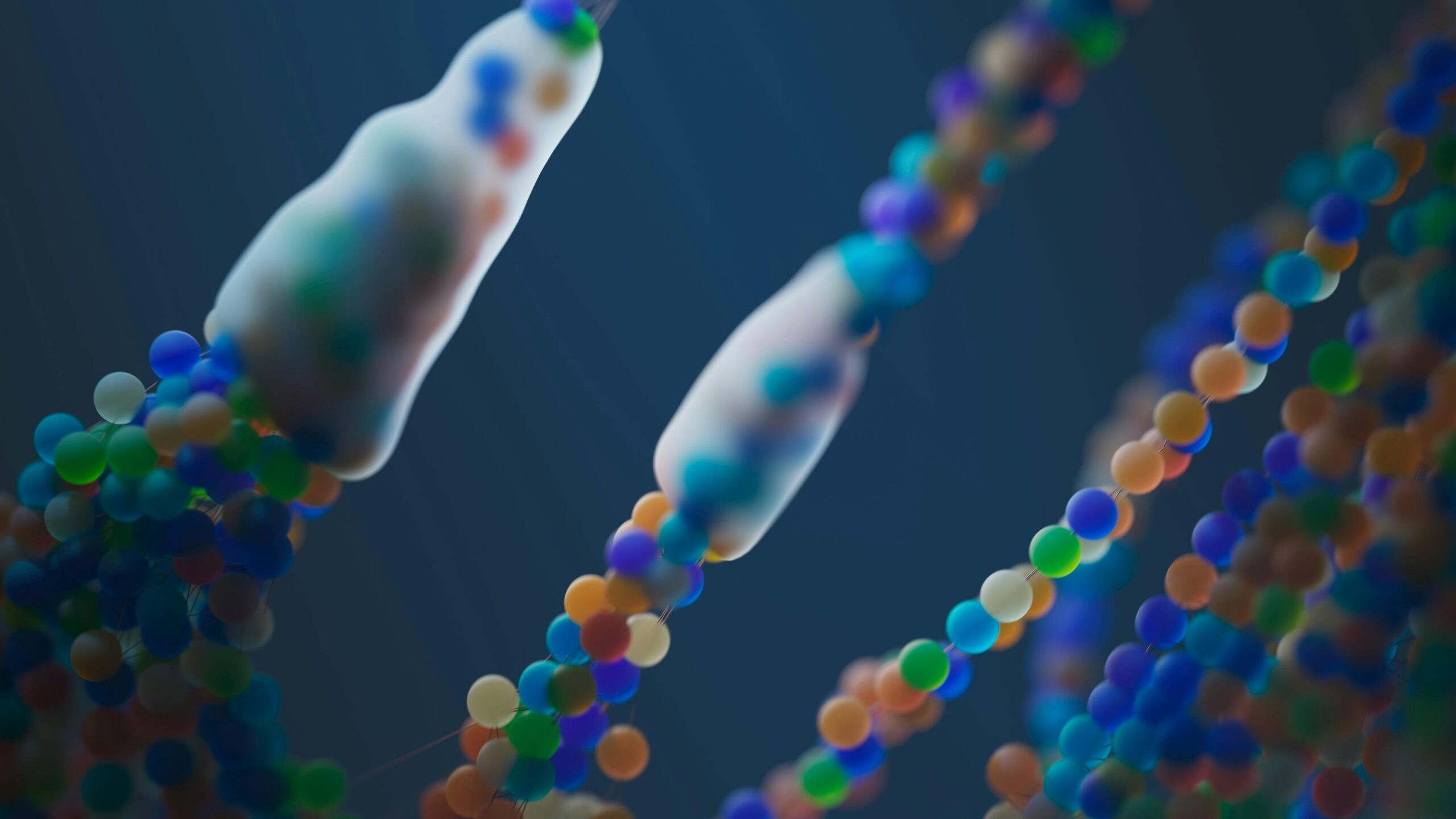The power to rewrite the human genetic code has moved from science fiction to laboratory reality, raising profound questions about our species’ future and the moral compass guiding scientific progress.
Germline editing technology, particularly CRISPR-Cas9, offers unprecedented opportunities to eliminate hereditary diseases and enhance human capabilities. Yet this same power forces humanity to confront uncomfortable truths about inequality, identity, and what it means to be human in an age where biology becomes programmable code.
🧬 The Dawn of a New Genetic Era
Germline editing refers to modifications made to human embryos, eggs, or sperm that can be passed down to future generations. Unlike somatic cell therapy, which affects only individual patients, germline changes alter the human gene pool permanently. This distinction carries enormous weight in ethical deliberations.
The 2018 announcement by Chinese scientist He Jiankui that he had created the world’s first gene-edited babies sent shockwaves through the scientific community. His unauthorized experiment aimed to confer HIV resistance through CCR5 gene deletion, but the ethical violations and scientific recklessness prompted international condemnation and his subsequent imprisonment.
This watershed moment crystallized the urgent need for global governance frameworks surrounding germline editing. The technology’s potential cannot be denied, but neither can the risks of proceeding without proper safeguards and societal consensus.
Medical Promise Versus Ethical Peril
The therapeutic applications of germline editing present compelling arguments for continued research. Thousands of monogenic diseases—conditions caused by mutations in single genes—could theoretically be eliminated from family lines forever. Huntington’s disease, sickle cell anemia, cystic fibrosis, and Tay-Sachs disease represent just a fraction of conditions that cause immense suffering.
Parents carrying genetic mutations face agonizing decisions about reproduction. Germline editing could offer these families the opportunity to have biological children without passing on devastating conditions. The moral imperative to prevent suffering resonates deeply with medical ethics principles of beneficence and non-maleficence.
The Slippery Slope of Enhancement
However, the boundary between therapy and enhancement remains dangerously ambiguous. Once society accepts germline editing to prevent disease, pressure will inevitably mount to use the technology for enhancements—increased intelligence, athletic ability, physical appearance, or longevity.
This trajectory raises fundamental questions about human diversity and acceptance. Would a society with the power to eliminate genetic “imperfections” become less tolerant of difference? The disability rights community has voiced legitimate concerns that genetic engineering could undermine decades of progress toward inclusion and accommodation.
Moreover, enhancement applications could exacerbate existing social inequalities. If germline editing becomes available only to wealthy families, we risk creating a genetic aristocracy—a biological caste system where economic privilege translates into inheritable genetic advantages.
🌍 Global Inequality and Access Justice
The geographic distribution of germline editing capabilities highlights stark global inequalities in healthcare access. Advanced genetic technologies remain concentrated in wealthy nations with robust research infrastructure, while populations bearing the greatest burden of genetic diseases often lack access to basic medical care.
This disparity creates ethical dilemmas around research priorities and benefit-sharing. Should germline editing research focus on rare genetic conditions affecting primarily Western populations, or on diseases like sickle cell anemia that predominantly impact people of African descent? How can we ensure equitable access to these technologies across economic and geographic divides?
International governance mechanisms must address these justice concerns proactively. Without deliberate policies promoting equitable access, germline editing could deepen global health inequalities rather than alleviate them.
Consent Across Generations
Perhaps the most philosophically challenging aspect of germline editing involves consent. The individuals most affected by these genetic modifications—future generations—cannot possibly consent to alterations made before their existence. This violates fundamental bioethics principles requiring informed consent for medical interventions.
Parents make countless decisions affecting their children’s futures, from education to religion to medical care. However, germline editing represents a categorically different type of decision—one that permanently alters the genetic inheritance not just of one child, but of all their descendants.
The Right to an Open Future
Philosopher Joel Feinberg introduced the concept of a child’s “right to an open future”—the right to make autonomous choices about their own lives once reaching maturity. Germline editing, particularly for enhancement purposes, could compromise this right by imposing parental preferences on fundamental biological characteristics.
If parents edit genes to increase height, intelligence, or athletic ability, they make irreversible choices based on current cultural values that may not align with their child’s own preferences or future societal norms. The permanent nature of germline changes eliminates the possibility of reversal if the individual later disagrees with modifications made on their behalf.
⚖️ Regulatory Frameworks and International Governance
The global nature of scientific research demands international coordination on germline editing policies. Individual nations have adopted widely varying regulatory approaches, from outright prohibition to permissive frameworks allowing research under specific conditions.
The United Kingdom’s Human Fertilisation and Embryology Authority permits limited germline editing research on embryos that cannot be implanted. China has tightened regulations following the He Jiankui scandal, but enforcement mechanisms remain unclear. The United States restricts federal funding for germline editing research but does not prohibit privately funded work.
This regulatory patchwork creates risks of “genomic tourism,” where individuals travel to jurisdictions with lax regulations to access prohibited procedures. Effective governance requires harmonized international standards developed through inclusive deliberative processes involving diverse stakeholders.
The WHO Advisory Committee
The World Health Organization established an expert advisory committee on human genome editing to develop global governance frameworks. Their recommendations emphasize transparency, international cooperation, and the inclusion of diverse perspectives in policy development.
Key recommendations include establishing international registries for germline editing research, developing clear scientific and ethical standards for clinical applications, and creating mechanisms for monitoring compliance and addressing violations. Implementation remains the critical challenge as these recommendations transition from principles to practice.
Scientific Uncertainty and Long-Term Risks 🔬
Beyond ethical concerns, significant scientific uncertainties surround germline editing safety and efficacy. CRISPR technology, while revolutionary, remains imperfect. Off-target effects—unintended modifications to genes other than the intended target—could have unpredictable consequences across generations.
Mosaicism, where some cells carry the intended edit while others do not, presents another technical challenge. The long-term effects of germline modifications cannot be fully assessed within single lifetimes, creating inherent uncertainty about multi-generational impacts.
Gene expression involves complex interactions between multiple genes and environmental factors. Editing a single gene might produce intended effects while triggering unexpected consequences through disrupted genetic networks. Our incomplete understanding of these interactions counsels humility and caution in proceeding with heritable genetic modifications.
Cultural and Religious Perspectives
Germline editing intersects with deeply held cultural and religious beliefs about human nature, the sanctity of life, and humanity’s relationship with the divine or natural order. These diverse perspectives must inform policy development in pluralistic societies.
Some religious traditions view germline editing as unacceptable interference with divine creation or natural processes. Others embrace technological intervention as an extension of humanity’s stewardship responsibilities or as compatible with religious values emphasizing healing and reducing suffering.
Indigenous communities often emphasize harmony with nature and interconnectedness across generations, perspectives that raise important questions about germline editing’s long-term ecological and social impacts. Incorporating these voices into predominantly Western scientific and bioethics discourse enriches deliberation and challenges unstated assumptions.
🎯 Moving Forward Responsibly
The path forward requires balancing scientific progress with ethical guardrails, therapeutic applications with enhancement concerns, and individual autonomy with collective responsibility. Several principles should guide this navigation:
- Transparency: Research activities must be publicly registered and subject to independent oversight to prevent rogue experiments
- Inclusivity: Policy development should incorporate diverse perspectives including patients, disability advocates, ethicists, and underrepresented communities
- Gradualism: Proceeding incrementally allows assessment of outcomes before expanding applications
- Equity: Governance frameworks must address access inequalities and prevent genetic enhancement from exacerbating social stratification
- Reversibility: Where possible, prioritizing interventions that future generations could reverse or modify
The Role of Public Engagement
Decisions about germline editing cannot be left solely to scientists, clinicians, or ethicists. These choices will shape humanity’s genetic future and must reflect broad societal values and preferences. Meaningful public engagement requires accessible education about the technology, opportunities for diverse voices to contribute to deliberation, and democratic processes for translating public input into policy.
Recent citizen assemblies and public consultations on germline editing demonstrate both the possibility and challenges of inclusive deliberation. Participants often express nuanced views that resist simple categorization as “pro” or “anti” technology, emphasizing context-dependent judgments about acceptable applications.
The Question of Human Nature
Underlying technical and ethical debates about germline editing are fundamental philosophical questions about human nature and identity. If we possess the power to redesign our genetic makeup, what should remain fixed as essential to human identity? Does human nature even exist as a meaningful concept, or is it simply descriptive of our current biological state?
Transhumanist philosophers argue that humans have always used technology to transcend biological limitations, from medicine to education to tools. From this perspective, germline editing represents a continuation of human enhancement rather than a categorical break with the past.
Critics worry that viewing humans as infinitely malleable through genetic engineering undermines the unconditional acceptance and dignity owed to all people regardless of genetic endowment. The drive to optimize may erode appreciation for human diversity and the inherent worth of individuals independent of their capabilities or characteristics.

🌟 Charting Humanity’s Genetic Destiny
The germline editing debate represents one of the most consequential conversations in human history. The decisions made in this generation will reverberate through countless future generations, shaping not just individual lives but the trajectory of human evolution itself.
This responsibility demands humility about the limits of our knowledge and foresight. It requires resisting both the temptation to rush forward recklessly and the impulse to reject powerful therapeutic tools out of fear. The middle path—proceeding thoughtfully with robust safeguards, broad stakeholder engagement, and commitment to equity—offers the best hope for harnessing germline editing’s benefits while minimizing risks.
We stand at a threshold where humanity gains unprecedented power over its own biological destiny. How we navigate this threshold will reveal much about our wisdom, values, and vision for the future. The ethical boundaries we establish around germline editing will demonstrate whether we can wield transformative technologies with the responsibility they demand, ensuring that scientific progress serves human flourishing rather than compromising it.
The conversation must continue, evolving as both technology and social understanding develop. Only through sustained, inclusive, and honest dialogue can humanity chart a course that honors both our therapeutic obligations to prevent suffering and our duty to protect human dignity, diversity, and the rights of generations yet unborn. The future we create through germline editing will ultimately reflect the values we choose to embody in navigating this profound scientific frontier.
Toni Santos is a biomedical researcher and genomic engineer specializing in the study of CRISPR-based gene editing systems, precision genomic therapies, and the molecular architectures embedded in regenerative tissue design. Through an interdisciplinary and innovation-focused lens, Toni investigates how humanity has harnessed genetic code, cellular programming, and molecular assembly — across clinical applications, synthetic organisms, and engineered tissues. His work is grounded in a fascination with genomes not only as biological blueprints, but as editable substrates of therapeutic potential. From CRISPR therapeutic applications to synthetic cells and tissue scaffold engineering, Toni uncovers the molecular and design principles through which scientists reshape biology at the genomic and cellular level. With a background in genomic medicine and synthetic biology, Toni blends computational genomics with experimental bioengineering to reveal how gene editing can correct disease, reprogram function, and construct living tissue. As the creative mind behind Nuvtrox, Toni curates illustrated genomic pathways, synthetic biology prototypes, and engineering methodologies that advance the precision control of genes, cells, and regenerative materials. His work is a tribute to: The transformative potential of CRISPR Gene Editing Applications The clinical promise of Genomic Medicine and Precision Therapy The design innovations of Synthetic Biology Systems The regenerative architecture of Tissue Engineering and Cellular Scaffolds Whether you're a genomic clinician, synthetic biologist, or curious explorer of engineered biological systems, Toni invites you to explore the cutting edge of gene editing and tissue design — one base pair, one cell, one scaffold at a time.




